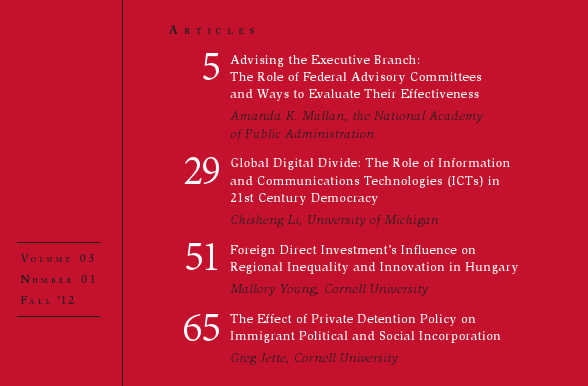The recent release of the results of the National Assessment of Educational Progress (NAEP) — also known as “the nation’s report card” — has prompted questions about what, exactly, successful states are doing right. Hawai’i, Tennessee, and Washington, DC all posted significant gains this year; DC Public Schools Chancellor Kaya Henderson cited the district’s emphasis on higher expectations for teachers as one reform that contributed to student achievement. To be sure, teacher quality has been a major focus of education reform in recent years, with more districts retooling how they evaluate teacher performance. But evaluation is only one part of the equation — districts must also rethink how they support teachers’ development as well.
Traditionally, professional development for K-12 teachers consists of one-time events such as workshops, seminars, or courses, which typically provide teachers with information, but do not afford opportunities to practice what has been learned in a real-life context. Often, all teachers within a school (or even an entire district) are expected to attend a given professional development session, regardless of teachers’ grade levels, subject areas, or individual needs.
Intuitively, this traditional model does not make sense; research has shown that effective professional development for K-12 teachers is sustained, focuses on subject matter, incorporates active learning with opportunities for hands-on practice, and is integrated into the daily life of the school. To that end, recent reform efforts in teacher training and support have focused on job-embedded professional development. This type of professional development is more ongoing and more targeted to individual teacher needs than traditional one-time professional development. Job-embedded professional development typically occurs in classrooms, targets the needs of the school and its students, and focuses on teachers’ current and individual concerns.
Ideally, new and developing teachers would receive individualized, in-the-classroom training, but this requires a level of investment that most districts are unable to provide. Given the recent funding decreases for schools across the country, it is easy to see why districts may prefer the traditional professional development route, with all teachers attending the same workshop led by one facilitator.
One option for cash-strapped districts and time-constrained teachers is online professional development. Though forums, learning communities, and resource-sharing websites for K-12 teachers have existed for years, job-embedded online professional development is relatively new. District of Columbia Public Schools (DCPS) is at the forefront of this shift, piloting a virtual instructional coaching program with the help of TNTP, formerly known as “The New Teacher Project”. DCPS’s program, Great Teaching, Great Feedback (GTGF), is an online service that pairs teachers with exceptional educators who serve as virtual coaches. Teacher-participants film themselves teaching a lesson, and their virtual coach provides them with feedback in the form of comments embedded within the videos. Teachers discuss their goals for improvement with their coaches and complete a cycle of four rounds of videos and feedback, with the idea that each video will show improvement in the areas teachers are targeting.
Given that this is the pilot year of the program, there is not yet conclusive data on whether GTGF improves teacher performance on objective measures of quality. However, findings from a midpoint survey conducted this month suggest that GTGF is hugely popular among current participants for both its ease of use and positive effect on instruction. Fourteen of the eighteen teachers who had uploaded at least two out of their four videos completed the survey, and seven participated in brief phone interviews to provide more detailed feedback about the pilot. All respondents rated the feedback they had received from their virtual coaches as “helpful” or “very helpful”, and all but one stated that they felt they had either already improved or were on track to improve their teaching practice by the end of the four-video cycle. Respondents consistently praised their virtual coaches’ abilities to provide targeted and actionable feedback, to act as thought partners in problem-solving individual concerns, and to strike a balance between pointing out teachers’ strengths as well as identifying their growth areas. Despite the small sample size of respondents, these results are especially encouraging given that ten out of the fourteen respondents did not opt into the pilot; instead, GTGF was a part of these teachers’ induction process into the profession. This suggests that GTGF could have a positive impact on teacher practice regardless of individual teachers’ mindsets about professional development or preferences for online platforms.
When the pilot ends, it will be interesting to see whether GTGF participants have improved on objective measures of teacher quality, as well as to measure how much time participants dedicated to the program. Based on the midpoint survey alone, it seems as though GTGF is providing teachers with individualized, job-embedded training that provides immediately actionable steps towards improvement. These qualities are in line with current research about — and trends in — effective professional development.
GTGF could be a game-changer for DCPS and other similar districts that are rethinking what it means to support K-12 teachers. Upon the successful conclusion of the pilot, the ability to scale and share the program will be the next, exciting challenge for education policy makers.

